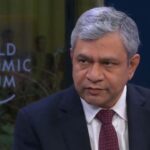
Dr. Payal Dey, Assistant Professor (Humanities and Liberal Arts), Indian Institute of Management Bodh Gaya
India is a young country – the MBA classrooms in IIMs aged on an average 23-25 years with 0-3 years of work experience is reflective of that. The changing demographic dividend will have over half its population under 30 by 2030 – this is the civic opportunity to respond to a growing demand for courses in sustainability, ESG, AI, and inclusive business models through integrated public policy subjects into management education to prepare future leaders for systemic and socially-responsible decision-making.
Beyond Business as Usual
India has witnessed transformations in the labour force over the last decade: the MBA-degree designed for the ‘intrinsic business’ needs of the 20th century is no longer enough due to constant shifts in the global and socio-political-economic landscape. The youth is dreaming beyond the 9-5 plus corporate setup: a defining and engaging moment has been the India Against Corruption movement of 2011–14. It was not just an expression of frustration with governance but a generational shift: public policy had entered the domain of everyday citizen. Today, students and young professionals alike are increasingly seeking careers where they can shape development outcomes, become part of participatory democracy, and solve social problems. B-schools and several other institutions and universities have been responding to this transition: leading institutions like IIMs (Ahmedabad, Bangalore and Calcutta) and ISB have successfully run policy-related programs and executive courses for more than a decade, with several others including IIT Delhi and IISc joining suit with innovative programme structure. The MBA in Public Policy and Governance by IIM Raipur is a recent launch exclusively for the domicile of Chhattisgarh offering full scholarship. Most programs typically cater to mid-career professionals; however, the goal should be different. Developing public policy skills and training at the foundational MBA level gives young graduates the early analytical orientation needed to become change agents.
Teaching Policy by Design, Not Default
Public policy education in India is still at a niche stage as compared to the long-established systems in the U.K. and U.S. While developing a policy curriculum for a B-school, the key approach should not be just to borrow and blend from countries that are theoretically rich and professionalised but to draw strengths from the existing models and tailor it to India’s developmental context, institutional complexity and demographic diversity with its young population and democratic framework. Rooting the course through liberal arts perspective would equip emerging managers with the analytical and creative tools needed to navigate today’s most complex governance challenges. Liberal arts’ interdisciplinary foundation draws from the fields of political science, ethics, economics, sociology, history, etc., thereby providing a holistic view of how policies are influenced by and affect societies. In a world where consulting firms, governments, multilateral organizations and key stakeholders including the public increasingly collaborate on structural problems, from climate resilience, unemployment, digital inclusion and public health, the course must go beyond conventional policy teaching. Policy Design as a specialised branch of public policy is more aligned to business mindset as its intended outcome is crafting, testing and implementing policies for solving real-world problems unlike traditional policy approaches that are centred on regulation and compliance. The interdisciplinary process of policy design is iterative and geared towards impact, where governance could be viewed as a service ecosystem (through real-time data analysis, prototyping/ simulations).
Developing Policy-Aware and Future-Relevant Curriculum for B-School
MBAs across the world are being pushed to think beyond profit margins in the face of recessionary market corrections and on-going disruptions. A recent article in The Economist cautions how even elite business graduates are now reconsidering career priorities by looking for alternatives to consulting, banking and high/big tech firms due to imbalances in socio-cultural volatility. Employers are also on the lookout for talent that understands not just balance sheets but the political economy of change i.e. creating value that is resilient and just. Several consultancy firms are even betting on advanced degrees in engineering or sciences for credibility. For institutions with evolving readiness such as new generation IIMs, introducing electives could help in gradually building policy capacity without overhauling course structure or disturbing the requirements of core courses for accreditations. The curriculum could further be rooted in local trends, for instance drawing on the experiences of Tier II or III cities that can serve as real-world policy lab – providing a dynamic environment for innovation. Capstone projects engaging with livelihoods, healthcare infrastructure, public finance, and regulatory architecture with partners – ranging from national and state governments, multilateral agencies, consulting firms or public or private sector undertakings would steer from theoretical training to socially applicable outcomes. This ‘policy’ preparedness responds to the article penned by Ajay Banga, President, World Bank on creating right conditions for strong infrastructure and a predictable regulatory environment for private capital that could unlock potential for growth through local jobs.
Future-Ready Managers
The learning outcome of such a course is not producing technocrats but policy-literate strategists – graduates who could brief Ministers, multilateral donors, design a social enterprise, or assess regulatory impacts. In today’s world, policy is not a vertical – It’s the foundation of responsible business decision-making. The World Economic Forum’s Future of Jobs Report highlights systems thinking, analytical problem-solving, and social impact fluency as key skills for 2030 – critical for navigating uncertainty, tech disruption, and the green and geoeconomic transitions. To meet that demand, electives must train students to operate confidently at the intersection of governance, policy, and business – not in theory, but in action.
(The view presented by the author are personal. She could be reached at payal.dey@gmail.com)


















No Comments: